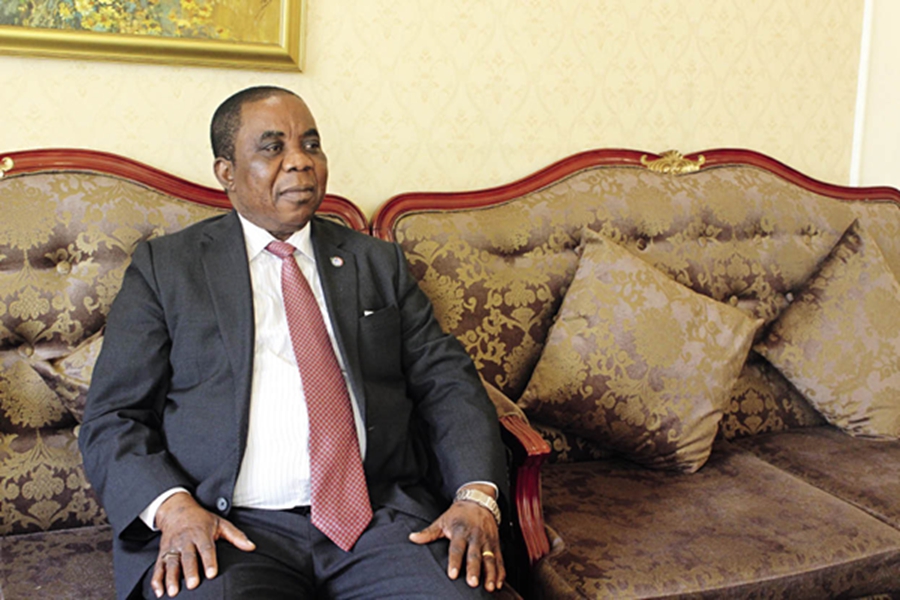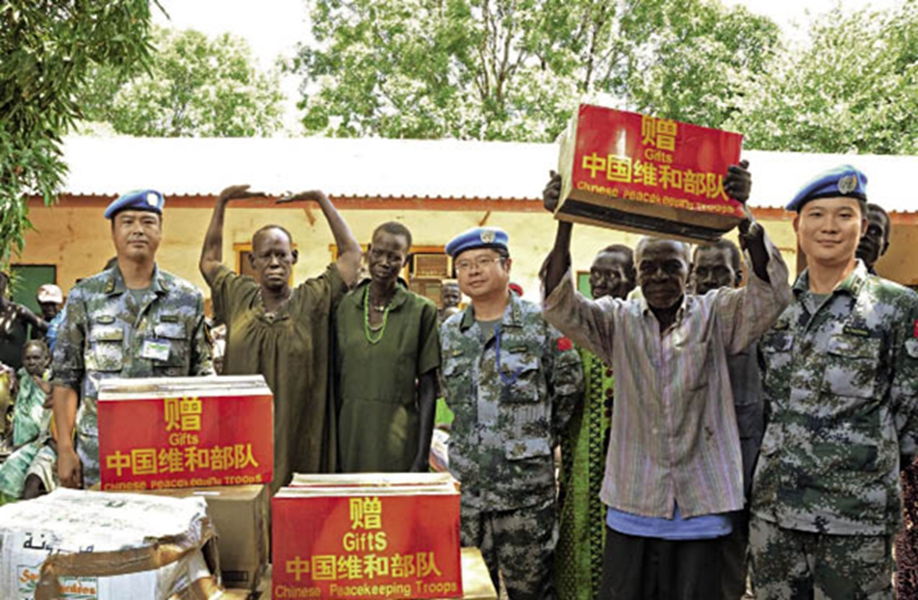By MICHAEL ZÁRATE
By MICHAEL ZÁRATE
ON December 5, 2015, during the second Forum on China-Africa Cooperation (FOCAC) in Johannesburg, South Africa, Chinese President Xi Jinping introduced the action plans and political principles for what will be a new era in relations between the two sides. In recent years, Africa has become an important partner of China, and their ties go beyond the economic sector. This is also the case for the relationship between China and the world’s youngest country, South Sudan.
At the Johannesburg forum, in front of almost 50 African leaders, President Xi Jinping proposed that China and Africa elevate their ties to that of “comprehensive strategic and cooperative partnership,” which rests on “five major pillars” of political equality and mutual trust, win-win economic cooperation, mutually enriching cultural exchanges, mutual assistance in security, and cooperation, solidarity and coordination in international affairs.
Peacekeeping Mission
Located in northeastern Africa, South Sudan has more than 10 million inhabitants. It became an independent state on July 9, 2011, having suffered two armed conflicts in which around two million civilians were killed. It is both world’s youngest and least stable country, and one of the nations that most need help.
Unfortunately, just a few months after achieving independence, South Sudan suffered a civil war that displaced more than one million people internally and resulted in the flight of 190,000 refugees to bordering Kenya, Ethiopia, Sudan, and Uganda. This dramatic situation motivated China’s collaboration and mediation.

Ambassador of South Sudan to China Michael Milli Hussein. Photo courtesy of Varvara Kotsebuk
“Last year, on the initiative of the Ministry of Foreign Affairs of the People’s Republic of China, a meeting was held in Khartoum (capital of Sudan) in which Chinese Foreign Minister Wang Yi introduced a strategy to promote the peace process in South Sudan,” Ambassador of South Sudan to China Michael Milli Hussein said in an interview with China Today.
Ambassador Hussein commended China’s sending an infantry battalion composed of 700 troops to South Sudan. In fact, this was a landmark decision, as it constituted assignment of the first Chinese group of infantry to a United Nations peacekeeping mission. “We are deeply grateful to China for its new commitments to peace preservation,” UN Under-Secretary-General for Peacekeeping Operations Hervé Ladsous said. China has been involved in the process of resolving the South Sudanese conflict since December 2013, when it started.
Challenges to a Young Nation
Ambassador Michael Milli Hussein’s expertise extends beyond the diplomatic sphere. A graduate of Egypt’s Alexandria University, he is also a doctor specializing in Tropical Medicine. His views, therefore, are important, especially as shortfalls in the healthcare sector are one of South Sudan’s main problems.
“South Sudan is a young country, barely four years old, and for any nation, the beginning is always difficult. We have needs in almost all areas,” Ambassador Hussein said. “Currently, China is assisting and giving training in South Sudan’s health sector. China supplies us with both medicine and the equipment necessary for our pharmaceutical industry, both of which are areas we want to expand.” In fact, Ambassador Hussein was in Taizhou of Jiangsu Province, known as China’s “Medical City,” at the beginning of January, investigating the possibility of establishing cooperative ties in this crucial sector.

The Chinese peacekeeping force presents gifts to locals in South Sudan. CIPG
Another important problem plaguing South Sudan’s first years of independence is its absence of adequate health infrastructure, an area in which China has much to offer. “We want a cooperation agreement that will help us to provide our people with better quality healthcare. A healthcare system is now our priority, as our communities are mostly rural. We hope to finalize Chinese aid towards establishing a primary healthcare system through infrastructure, staff training, and provision of medicine and medical equipment,” Ambassador Hussein said.
The year 2016 marks the decade since the first Chinese medical team arrived in Wau, a city in northwestern South Sudan, and established Wau Teaching Hospital, a level-II hospital under the United Nations’ framework. Although the largest hospital in Bahr el Ghazal (a region of western South Sudan), it still suffers from a shortage of physicians, specialists, and advanced equipment.
The current director of the hospital, Alex Baklet, was a volunteer when the first Chinese medical team arrived in Wau. Speaking to China Radio International, Baklet recalled that upon arrival in the country, Chinese specialists inspected the new hospital equipment and repaired its sole ultrasound machine. “They came to the hospital and saw that the equipment was not functioning, and did their best to repair it in order to get to work. When they receive more drugs they also bring them to the hospital. So the relationship between our hospital and the Chinese team, I can say, is that of brother-to-brother. Whenever we ask, they are ready to help,” Baklet said.
During his visit to Taizhou City, Ambassador Hussein went to the headquarters of the Yangtze River Pharmaceutical Group, one of the largest in the country. Hussein recalled that China leads the production of medicines for malaria, as exemplified by recent Nobel Prize laureate Tu Youyou. “More than 30 percent of deaths in South Sudan, particularly among children and the elderly, are from malaria,” Ambassador Hussein said. He has hence invited Chinese pharmaceutical companies to invest in his country. “We have flexible rules for investments,” he added.
In addition to the healthcare system, there are currently 140 Chinese enterprises in South Sudan. In addition, China is the largest investor in the South Sudanese oil industry, with an almost 40 percent share in this sector, which also includes Malaysian and Indian companies. Chinese firms are also involved in agriculture, mining, and the construction of roads and airports. There are more than 60 South Sudanese students in China, mainly studying petroleum engineering, according to Ambassador Hussein.
There are indeed many areas suitable for active bilateral cooperation. For example, the United Nations World Food Programme announced last November that it had received a donation from the Chinese Government of US $ 5 million to deal with the food crisis that had erupted in South Sudan due to internal conflict. The donation was used to buy cereal, oil and salt. The dramatic situation has thus united the two countries.